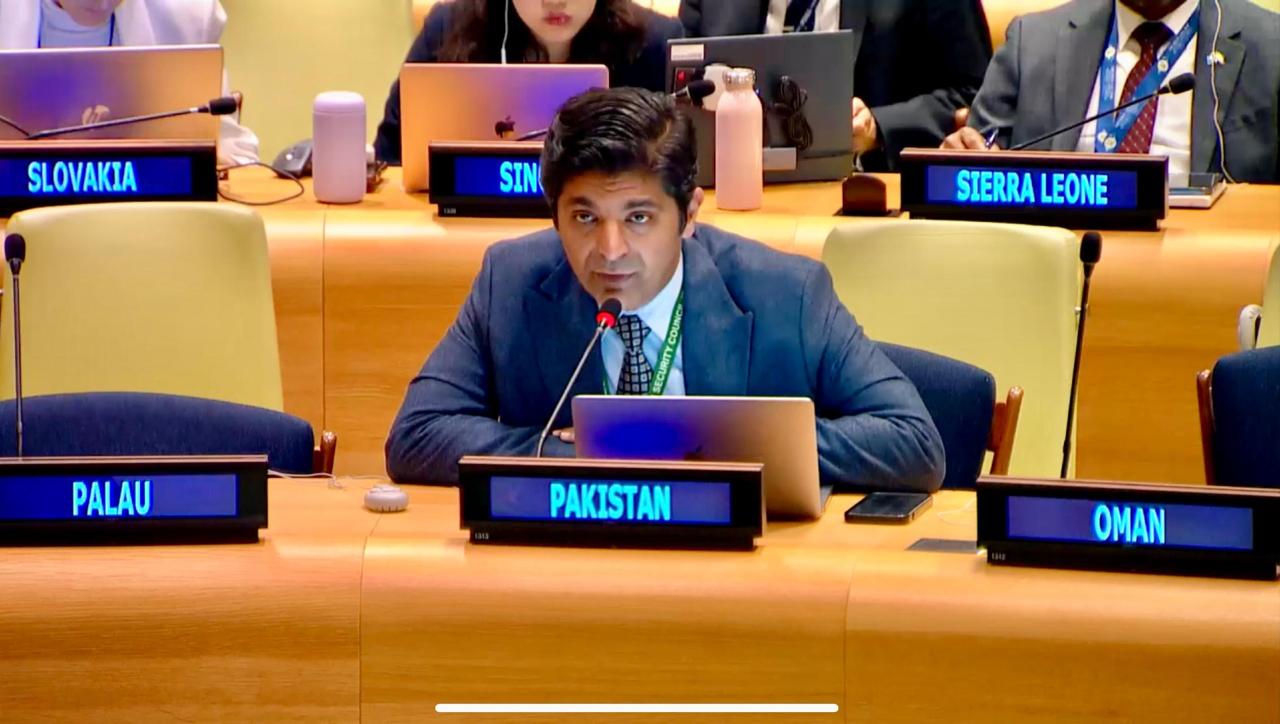Mumtaz Hussain
UNITED NATIONS: Pakistan forcefully rejected what it called “baseless and malicious” allegations made by India during the debate on Agenda Item 109: “Measures to Eliminate International Terrorism” at the United Nations General Assembly.
Exercising his Right of Reply, Counsellor Muhammad Jawad Ajmal condemned India’s remarks as disinformation aimed at deflecting attention from its own actions.
Addressing the assembly, Ajmal said that India “not only perpetrates state terrorism, but also peddles disinformation and propaganda, and proliferates hate through false narratives as part of its narrow foreign policy agenda.”
Responding to earlier comments made by the Indian delegate in the context of Pahalgam, Ajmal reiterated that Pakistan had unequivocally condemned the attack and offered an independent, credible investigation, which he said New Delhi rejected.
Instead, he accused India of violating Pakistan’s sovereignty in a “blatant act of aggression” that killed 54 civilians, including 15 children and 13 women.
“This behavior sets a dangerous precedent, providing a template for states that seek to intimidate their neighbors. The global community cannot afford to ignore such errant and rogue behavior,” Ajmal stated.
He emphasized that Pakistan’s response was “befitting, proportionate, and manifestly restrained,” carried out under Article 51 of the UN Charter as an act of self-defense. He added that the subsequent ceasefire was brokered through the good offices of the United States at the request of New Delhi, highlighting Pakistan’s maturity in handling the crisis.
Ajmal dismissed India’s accusations of cross-border terrorism as “a deliberate attempt to repeat lies until they are accepted as the truth.” He described India as “a regional bully and net destabilizer” driven by hegemonic ambitions and Hindutva ideology, which he said fosters hate, division, and xenophobia in South Asia.
The Pakistani diplomat accused India of illegally occupying territory and committing human rights violations in Indian Illegally Occupied Jammu and Kashmir (IIOJK), whose disputed status is recognized by the United Nations.
He alleged that India sponsors and finances terrorist entities targeting Pakistan, runs a global campaign of extraterritorial assassinations and clandestine operations in countries including the United States and Canada, and reflexively blames Pakistan for incidents without evidence or investigation.
Ajmal reaffirmed Pakistan’s commitment to peace and dialogue, stressing that “the lives of 1.5 billion people of South Asia deserve prosperity and stability.” He concluded by calling on India to embrace “sincerity, mutual respect, and genuine diplomacy” if it truly seeks lasting peace in the region.


Comments are closed.